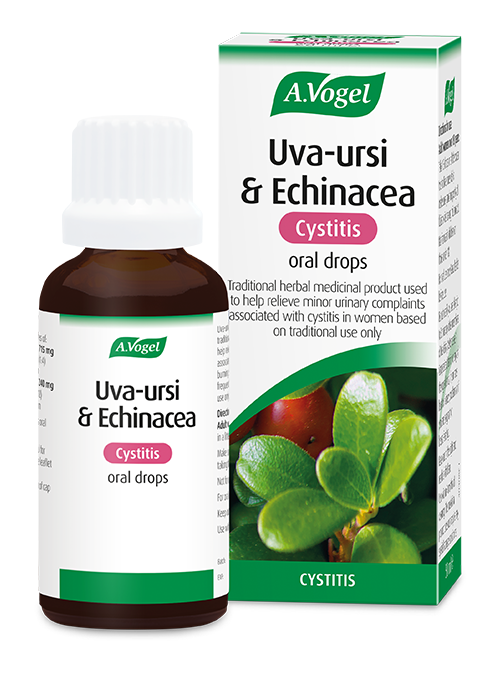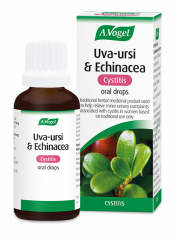Why is the immune system so important when it comes to cystitis?
Even with winter finally drawing to a close, the recent cold snap in the weather has left many of us struggling to fight off the last of the cold and flu outbreaks that have plagued us over the last few months.
When we think of the cold and flu season – the immune system is often top of mind, but why are we less quick to consider our immune functions when it comes to other conditions, such as cystitis?
Just like colds and flu which are often causes by viral or bacterial infections, more often than not, cystitis is caused by a bacterial infection too. So, just like when we feel a scratchy throat or a runny nose coming on, if you feel a niggle down below, you are also relying on our immune system firing up, stopping the invaders in their tracks, and helping to keep those symptoms under control!
This is even more so if our tissues have become vulnerable as a result of previous damage (in the case of recurrent cystitis, for example) as then our immune system has to work that little bit harder. Damaged tissues mean that the initial physical barrier is compromised (our immune system’s armour if you like) and so our immune cells need to be extra vigilant in order to be on the lookout for potential pathogens.
What signs suggest your immune system may be under pressure?
If you suffer from recurrent cold and flu infections, then it could be a sign that your immune system needs some additional support. But when it comes to cystitis, what are some of the warning signs to look out for?
- The repeated need for antibiotics –Antibiotics aren’t always necessarily the answer when it comes to cystitis. Although in some cases they are most definitely required for example, to help protect your kidneys from infection, they shouldn’t always be the go-to. In many cases, with some suitable precautions your immune system should be capable of fighting off a minor UTI or a bout of cystitis within a few days. However, if you need to repeatedly step in with antibiotics, then it could suggest that your immune system is flagging. This comes with a whole host of other issues including the implications antibiotics can have for our gut bacteria which we know are important for supporting our immune functions. Plus, there’s the threat of antibiotic resistance which doesn’t bear thinking about if your immune functions are already compromised

- Recurrent cystitis –If you suffer from recurrent cystitis it could be a sign your immune system is struggling to keep things under control. There may be some structural issue which is making infections more likely, such as a prolapse, for example, but it may also be a good idea to consider supporting the immune system
- Interstitial cystitis – Cases of interstitial cystitis are often a little more complicated. With no obvious infection, one might assume that the immune system is working away fine and needn’t be very involved! However, the underlying cause is generally somewhat unknown, and one theory is that the immune system is overreacting, giving rise to symptoms when there is no infection underlying. Autoimmune conditions should be treated by a practitioner, but if interstitial cystitis is a problem, this might just be something to consider.
What factors could be affecting your immune system?
If you suspect that your immune system is struggling to keep up with the demands, it might be time to consider implementing some dietary and lifestyle factor that could help:
- A limited diet – If you live on convenience foods then it’s not likely to be giving your immune system the support it needs. Processed foods will not only lack in the nutrients you need to support your immune system such as zinc or vitamin C, but they will also contain pro-inflammatory ingredients that won’t help to create a supportive internal environment. Aim to eat fresh and avoid excess sugar, alcohol and caffeine

- Poor sleep or stress – Insufficient sleep and excess stress will only put your immune system under more pressure. Aim to rest, relax and get enough shut eye in order to help support those immune functions
- Age – Unfortunately as you get older your immune system can struggle to keep up with the demands. For a number of reasons, from changing diets to physical changes, issues such as cystitis can become more common. So, it might be time to take some extra precautions and don’t risk falling victim to those recurrent infections
- Exercise habits – Whether it’s too much or too little, the amount of exercise you do is an important consideration. Leading a sedentary lifestyle means that you risk having poor circulation which means your immune cells aren’t going to be patrolling as meticulously as we would like. On the other hand, with over-exercise, you risk throwing your body into a state of stress and your immune functions could become compromised as a result. Aim for a happy medium for optimal support.
What can be done to help?
So, if cystitis is getting you down and you suspect your immune functions could be at the root of the problem, here are my top tips to help get you back on track:
- Employ an immune-boosting diet – If your immune system needs a boost there’s nothing better than employing some fresh foods. Avoid processed meals and snacks and cook from scratch using lots of fresh ingredients. Fresh fruit and vegetables will be rich in vitamins, minerals and antioxidants to help give your immune system the resources it needs. Be sure to limit alcohol as much as possible too as this can make your immune cells sluggish
- Vitamin C – As much as fresh fruit and veg is a good source of vitamin C, if recurrent cystitis is an issue for you then some extra vitamin C will come in handy. A good quality vitamin C derived from natural sources will not only help support the immune system, but will also help with the repair of any previously damaged tissues within the urinary tract
- Uva-ursi – At the first sign of an infection, start taking our Uva-ursi complex. The herb Uva-ursi has astringent and anti-inflammatory properties and together with Echinacea, this remedy also helps to support your immune system – ideal!
Uva-ursi & Echinacea Cystitis Oral Drops. Cystitis Treatment for Women
£12.99 (50ml) Get it tomorrow, 3rd July.
- Echinacea – Whilst Uva-ursi is the remedy to go for at the time of a cystitis infection, longer term, Echinaforce can be used to help support the immune system, plus help ward off that lingering cold or flu. This can come in especially useful during high risk times, for example in the winter months

- Cranberry – To help support the urinary tract in the long-term, Cranberry is a good option. Research has shown that cranberry supplements can help prevent bacteria to adhering to the urinary tract and reduce the incidence of subsequent infections
1. Caljouw, MA et al. Effectiveness of cranberry capsules to prevent urinary tract infections in vulnerable older persons: a double-blind randomized placebo-controlled trial in long-term care facilities. J Am Geriar Soc. 2014, 62(1), p103-110











